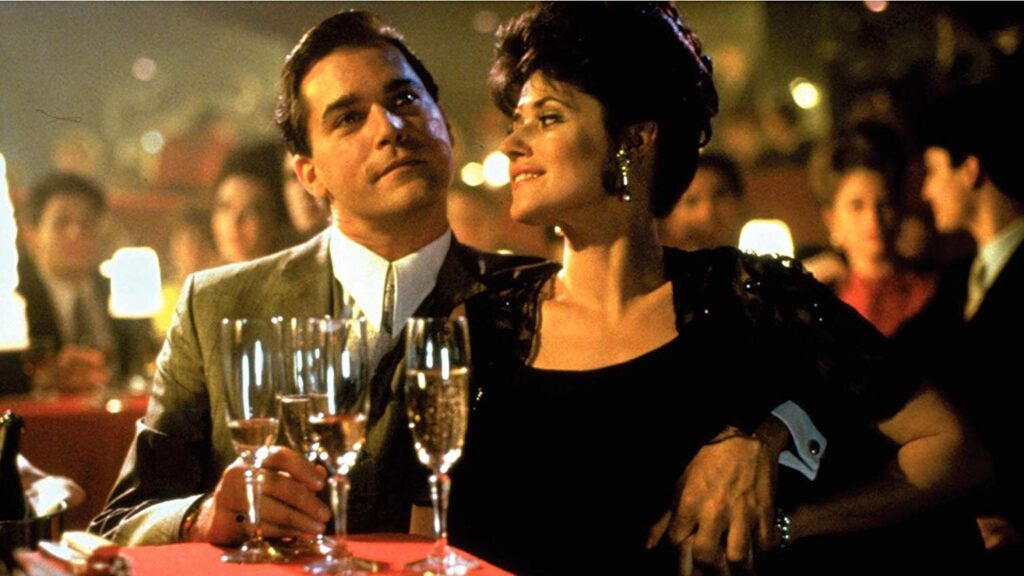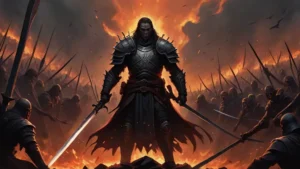How to Analyze the Themes in Goodfellas

How to Analyze the Themes in Goodfellas
Goodfellas is more than just a classic gangster film; it’s a riveting exploration of the human experience wrapped in the gritty world of organized crime. Directed by Martin Scorsese, this cinematic masterpiece delves into the lives of mobsters with an unflinching lens. With its sharp dialogue and unforgettable performances, it leaves viewers captivated long after the credits roll.
But what makes Goodfellas truly exceptional? It’s not just about flashy cars or intense heists. The film weaves together complex themes that resonate deeply within us all—loyalty, power, greed, betrayal, and family dynamics. Each theme enriches our understanding of the characters and their motivations.
By peeling back these layers, we can uncover what drives each character’s actions and decisions. Join me as we dive into the intricate themes in Goodfellas that elevate it from mere entertainment to a profound commentary on life itself.
The theme of Loyalty in Goodfellas
Loyalty in “Goodfellas” is a double-edged sword. It binds characters together but also leads to their downfall. The film showcases how loyalty can drive people to commit heinous acts.
Henry Hill’s unwavering allegiance to the mob emphasizes this theme profoundly. His desire for acceptance within the criminal world shapes his identity and decisions. Yet, it also blinds him to the consequences of that loyalty.
The camaraderie among gangsters feels genuine at first, creating an illusion of brotherhood. However, as tensions rise, those bonds fray quickly. Betrayals unfold swiftly when self-interest takes precedence over loyalty.
Characters like Jimmy Conway demonstrate that loyalty often comes with a price tag—one that not everyone can afford to pay without losing themselves entirely. This exploration reveals a crucial aspect of mob life: trust is both invaluable and perilous in equal measure, leaving characters grappling with its complexities throughout their journey.
The theme of Power and Greed in Goodfellas
Power and greed are central themes woven into the fabric of Goodfellas. The film paints a vivid picture of how ambition can drive individuals to extreme measures.
Henry Hill, portrayed masterfully by Ray Liotta, embodies this relentless pursuit. His journey from a small-time kid to a powerful mobster reveals the intoxicating allure of wealth and status.
As he climbs the ranks, his moral compass warps under pressure. Every decision becomes tainted with selfishness, often leading to destructive outcomes for himself and others around him.
The depiction of lavish lifestyles contrasts sharply with the violence that accompanies such power. Celebratory moments quickly spiral into chaos as characters prioritize their desires over relationships or ethics.
Goodfellas doesn’t shy away from showing how greed can corrupt even the most loyal friends, ultimately leaving them isolated in their pursuits. This exploration raises questions about what it truly means to succeed in a world driven by materialism and dominance.
The theme of Betrayal in Goodfellas
Betrayal runs deep in Goodfellas, weaving a complex web among characters. The film portrays how loyalty can quickly turn to treachery in the unforgiving world of organized crime.
Henry Hill’s journey illustrates this stark reality. Friends become enemies as ambition overshadows camaraderie. Trust is fleeting, often shattered by greed and self-preservation.
The chilling moment when Jimmy Conway orders Tommy DeVito’s execution highlights betrayal’s brutal nature. It’s not just about losing life; it represents the collapse of brotherhood forged in crime.
Moreover, Karen Hill’s perspective adds another layer. Her disillusionment reveals how betrayal infiltrates personal relationships within this violent realm. She grapples with her husband’s conflicting loyalties, ultimately feeling abandoned.
Through these betrayals, Goodfellas captures a gritty truth: loyalty is conditional and trust can be weaponized against you at any moment. This theme resonates long after the credits roll, leaving audiences questioning their own perceptions of loyalty and friendship in darker contexts.
The role of Family in Goodfellas’ Themes
Family plays a crucial role in the themes of Goodfellas. It serves as both a source of strength and conflict throughout the narrative.
Henry Hill’s connection to his family often influences his decisions. His desire for acceptance pushes him deeper into the mob lifestyle, where loyalty is paramount. The bonds he forms within this criminal family become more significant than traditional familial ties.
Yet, these relationships are fraught with tension. As loyalty shifts and betrayal emerges, Henry’s understanding of what family means transforms dramatically.
The film portrays how crime can distort familial values, blurring lines between love and obligation. This complex dynamic emphasizes that no bond is invulnerable when power and greed enter the picture.
Through these intricate connections, Goodfellas invites viewers to reflect on their own definitions of family amidst chaos and moral ambiguity.
Symbolism and its impact on the themes of Goodfellas
Symbolism plays a crucial role in shaping the themes of Goodfellas. It adds layers of meaning that enhance the viewer’s experience. One prominent symbol is the iconic “cuckoo clock.” It represents time and its inevitable passage, mirroring Henry Hill’s fleeting rise to power.
The color red also appears frequently throughout the film. This color symbolizes violence and passion, underscoring moments of betrayal or intense loyalty among characters.
Moreover, food acts as a powerful symbol of family ties within organized crime culture. Shared meals signify unity but also highlight tension when trust breaks down.
These symbols enrich the narrative, allowing audiences to grasp complex emotions and motivations behind each character’s actions. The careful use of symbolism invites deeper exploration into how life choices intertwine with fate in this gripping story about mob life.
Conclusion: Why analyzing themes is important for understanding a film’s deeper meaning
Analyzing themes is crucial for grasping the deeper meanings within a film like Goodfellas. Themes provide insights into the characters’ motivations, their actions, and the consequences that follow. By exploring elements such as loyalty, power, greed, betrayal, and family dynamics, viewers discover rich layers of storytelling.
Goodfellas isn’t just a tale about mob life; it serves as a commentary on human nature itself. The relationships portrayed invite us to reflect on our values and choices. When we dissect these themes, we can appreciate how they intertwine throughout the narrative.
Engaging with these ideas enhances our understanding of not only this iconic film but also others in its genre. It encourages critical thinking about what drives individuals toward certain paths in life—both good and bad—and allows us to connect more deeply with the story being told on screen.
Recognizing thematic nuances enriches our viewing experience and offers lasting lessons that extend beyond cinema.







